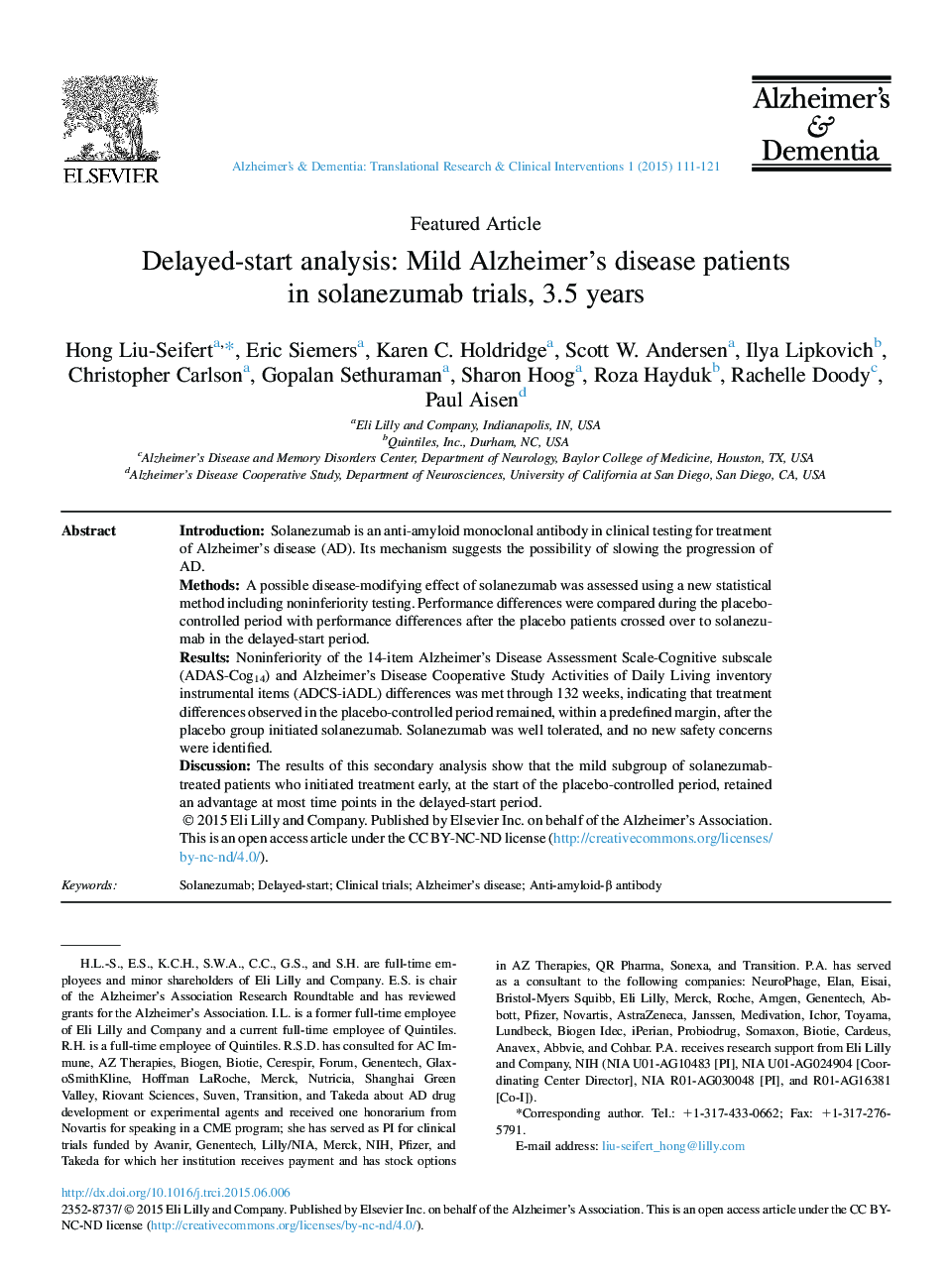| Article ID | Journal | Published Year | Pages | File Type |
|---|---|---|---|---|
| 3032082 | Alzheimer's & Dementia: Translational Research & Clinical Interventions | 2015 | 11 Pages |
IntroductionSolanezumab is an anti-amyloid monoclonal antibody in clinical testing for treatment of Alzheimer's disease (AD). Its mechanism suggests the possibility of slowing the progression of AD.MethodsA possible disease-modifying effect of solanezumab was assessed using a new statistical method including noninferiority testing. Performance differences were compared during the placebo-controlled period with performance differences after the placebo patients crossed over to solanezumab in the delayed-start period.ResultsNoninferiority of the 14-item Alzheimer's Disease Assessment Scale-Cognitive subscale (ADAS-Cog14) and Alzheimer's Disease Cooperative Study Activities of Daily Living inventory instrumental items (ADCS-iADL) differences was met through 132 weeks, indicating that treatment differences observed in the placebo-controlled period remained, within a predefined margin, after the placebo group initiated solanezumab. Solanezumab was well tolerated, and no new safety concerns were identified.DiscussionThe results of this secondary analysis show that the mild subgroup of solanezumab-treated patients who initiated treatment early, at the start of the placebo-controlled period, retained an advantage at most time points in the delayed-start period.
